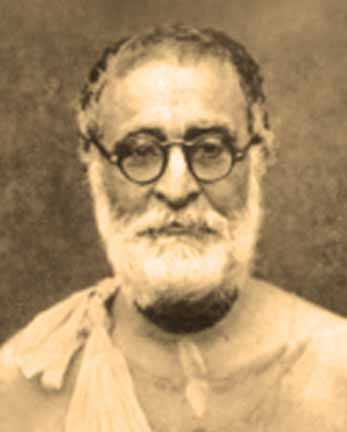śrī śrī guru gaurāṅga jayataḥ!

Year 12, Issue 7
Posted: 21 August 2019
Dedicated to
nitya-līlā praviṣṭa oṁ viṣṇupāda
Śrī Śrīmad Bhakti Prajñāna Keśava Gosvāmī Mahārāja
Inspired by and under the guidance of
Śrī Śrīmad Bhaktivedānta Nārāyaṇa Gosvāmī Mahārāja
Divine Amour – Part 2

It is not necessary for Divinity to end the worldly sojourn of the conditioned soul to deliver him. That would be opposed to the purpose of divine descent. Just as Godhead becomes visible to the conditioned soul without being transformed into any object of this world, the conditioned soul is lifted to the plane of transcendence while continuing to appear mundane to the external vision of mundane spectators.
One, who has been given real vision of Divinity need no longer misunderstand the transcendental nature of service to Him. He is also in a position to render such service with his spiritual senses, but his activities continue to appear mundane to ignorant observers. Their mistake, however, can be rectified if they observe, with true humility, the activities of a real devotee. It cannot be corrected by any other method. The Supreme Lord chooses to manifest His appearance in this world to give the conditioned souls a chance to observe His and His devotees activities.
We should now be in a somewhat better position to understand how the chanting of the name of Kṛṣṇa in the company of transcendental devotees is identical with the spiritual milk-maids’ amorous service in Śrī Kṛṣṇa’s realm. Such amorous service becomes realizable as the transcendental word enters the spiritual ear of the soul. There is no way of accessing this as long as Kṛṣṇa is not pleased to relieve us fully of the perverse inclinations of the conditioned state. However, chanting the holy name without offence – that is, in the company of self-realized souls and by the method followed by them – has the power to destroy the effects of our past atheistic activities and relieve us from reversion to the mundane plane by imparting to us positive eternal service to Divinity, tentatively and symbolically during our mundane sojourn, and then fully on the termination of the allotted span of our mundane life brought about by Śrī Kṛṣṇa’s will.
Certain advocates of traditional Indian culture object to the worship of Śrī Rādhā-Kṛṣṇa in the mood of amorous love epitomized by the spiritual milkmaids of Vraja. But such objections will be found to be inapplicable if we seek enlightenment regarding the actual meaning of such worship by reverently listening to an account of the career of Śrī Kṛṣṇa Caitanya from the holy lips of self-realized souls. And we must listen without unduly relying on our mundane judgment, which has no access to the plane of transcendence.
The unprejudiced study of the career of Śrī Kṛṣṇa Caitanya offers the required help in the fullest measure. The esoteric reason for this is that Śrī Kṛṣṇa Caitanya is Śrī Kṛṣṇa Himself. The associates of Śrī Kṛṣṇa Caitanya are the same as the spiritual milkmaids and other servitors of Śrī Kṛṣṇa in Vraja. The activities of Śrī Kṛṣṇa Caitanya and His associates are also identical with and yet distinct from the pastimes of Śrī Kṛṣṇa in Vraja. They can show themselves to us if they choose to do so. They come down to this plane for the purpose of showing themselves to us in a form that is not capable of being misunderstood: the activities of self-realized souls.
Here is the speciality of the appearance of Śrī Kṛṣṇa Caitanya: Divinity Himself and His associates take the initiative to reveal themselves to us by enabling us to regard them from the necessary angle of vision for us to realize Their identity. All we need to do is adjust ourselves to the requirements delivered to us by such vision. Such adjustment is impossible under the guidance of deluded souls. The chance of self-deception is minimized if we avail ourselves of the [literary] interpretations of the career of Śrī Kṛṣṇa Caitanya that have been offered by the lives and writings of His associates, and by those pure souls who faithfully live up to these teachings, which are meant for our eternal wellbeing and which have been handed down in those works.
Adapted from The Gauḍīya, Year 17, Number 4
by the Rays of The Harmonist team